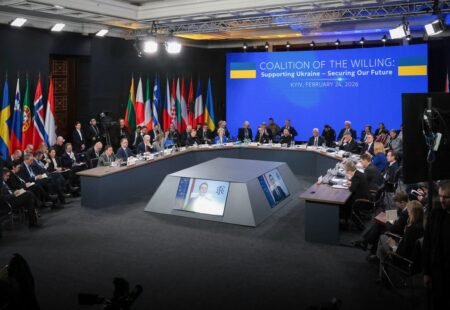(LUXEMBOURG) – EU states gave the green light Wednesday to a provisional agreement on the revision of the renewable energy directive, with a headline target of 32% energy from renewable sources at EU level for 2030.
This new regulatory framework will pave the way for Europe’s transition towards clean energy sources such as wind, solar, hydro, tidal, geothermal, and biomass energy. It will also allow Europe to maintain its leadership role in the fight against climate change and in meeting the goals set by the Paris Agreement.
The agreement sets a headline target of 32% energy from renewable sources at EU level for 2030. There is a clause to review this target in the event of changes in demand of energy consumption and to take account of the EU’s international obligations.
“With the new EU-wide target of 32% for energy from renewable sources Europe is showing leadership in the transition to clean energy,” said Bulgaria’s Energy Minister Temenuzhka Petkova, for the EU presidency.
The revised renewable energy directive is one of eight legislative proposals of the clean energy package which the Commission presented in November 2016.
The EU has undertaken to cut CO2 emissions by at least 40% by 2030. By boosting renewable energy, which can be produced from a wide variety of sources including wind, solar, hydro, tidal, geothermal, and biomass, the EU is looking to lower its dependence on imported fossil fuels and making its energy production more sustainable. The renewable energy industry also expected to drive technological innovation and employment across Europe.
Other key elements of the agreement:
- The design of support schemes will provide for a possibility of technology specific support, aligned with state aid guidelines. The opening of renewable support towards neighbouring member states will be voluntary, at an aspirational pace of at least 5% between 2023 and 2026 and 10% between 2027 and 2030. Except for certain cases, member states will be obliged to issue guarantees of origin.
- Permit granting procedures will be simplified and streamlined with a maximum of two years for regular projects and one year in case of repowering, both extendable for an additional year in case of specific circumstances and notwithstanding environmental and judicial procedures. For small-scale projects below 10.8kW simple notification procedures will apply. Each member state may choose to apply simple notification procedures also to projects up to 50kW.
- The annual increase of energy from renewable sources in heating and cooling will be 1.3 percentage points indicatively, or 1.1 percentage points if waste heat is not taken into account.
- Via obligations on fuel suppliers, renewables will reach a level of at least 14% in transport by 2030, supplemented by a set of facilitative multipliers to boost renewables in different sectors.
- Conventional biofuels will be capped EU-wide at a maximum of 7%, with additional member state caps if below 7%. The counting of biofuels with a high risk of indirect land use change (ILUC) will be freezed at 2019 levels and gradually phased out from 2023 towards 2030.
- For biomass based electricity production, efficiency criteria will be applied according to the size of installations.
- The directive also establishes a clear and stable framework for household self-consumption. This means that consumers with small-scale installations of up to 30kW will be exempt from any charges or fees, while allowing member states to apply charges if self-consumption grows excessively.
The endorsement by EU ambassadors means that the directive can be submitted for approval to the European Parliament, where the plenary vote is expected in October, and then back to the Council for final adoption. The directive will enter into force 20 days following its publication in the Official Journal of the EU.








